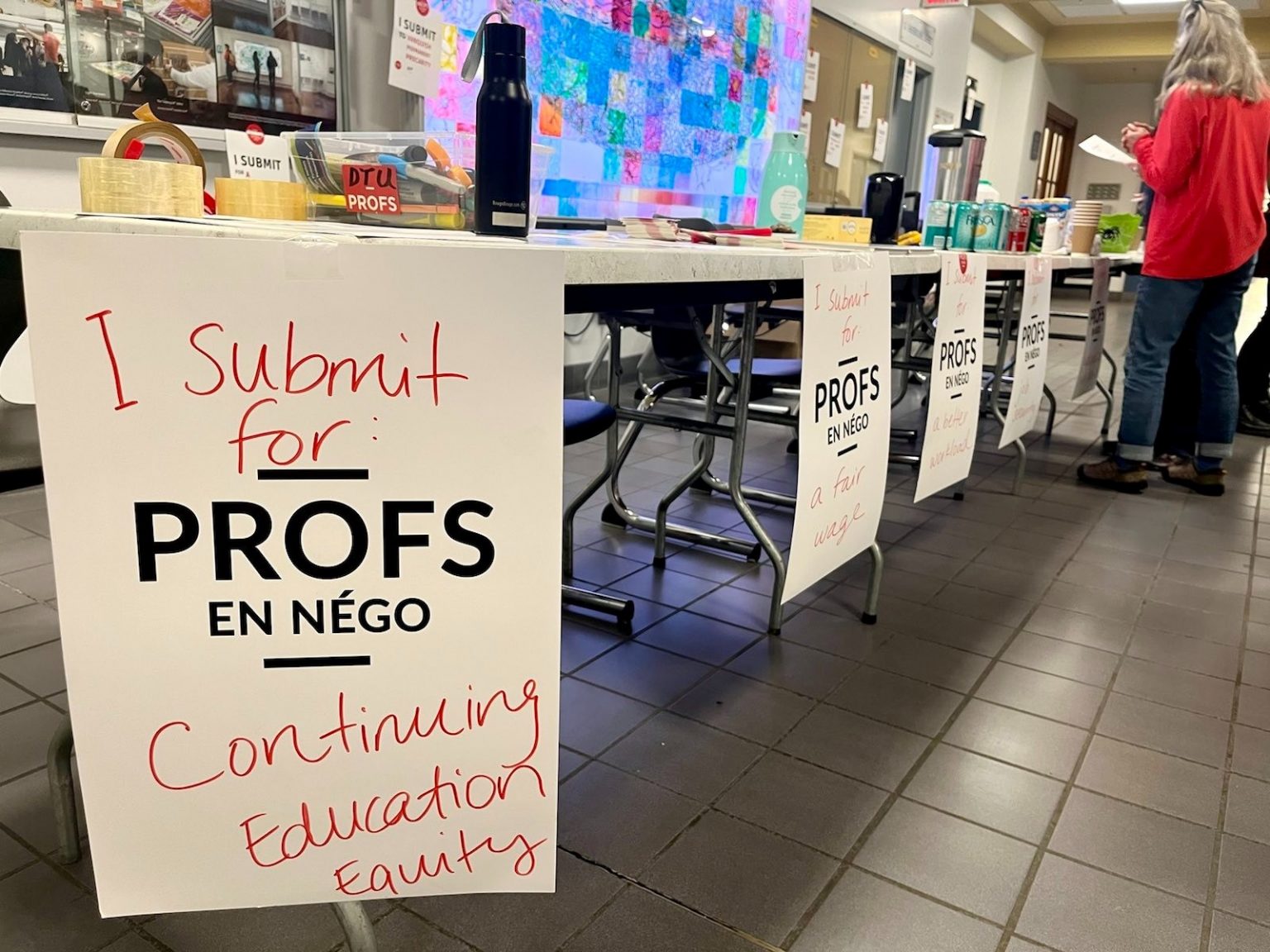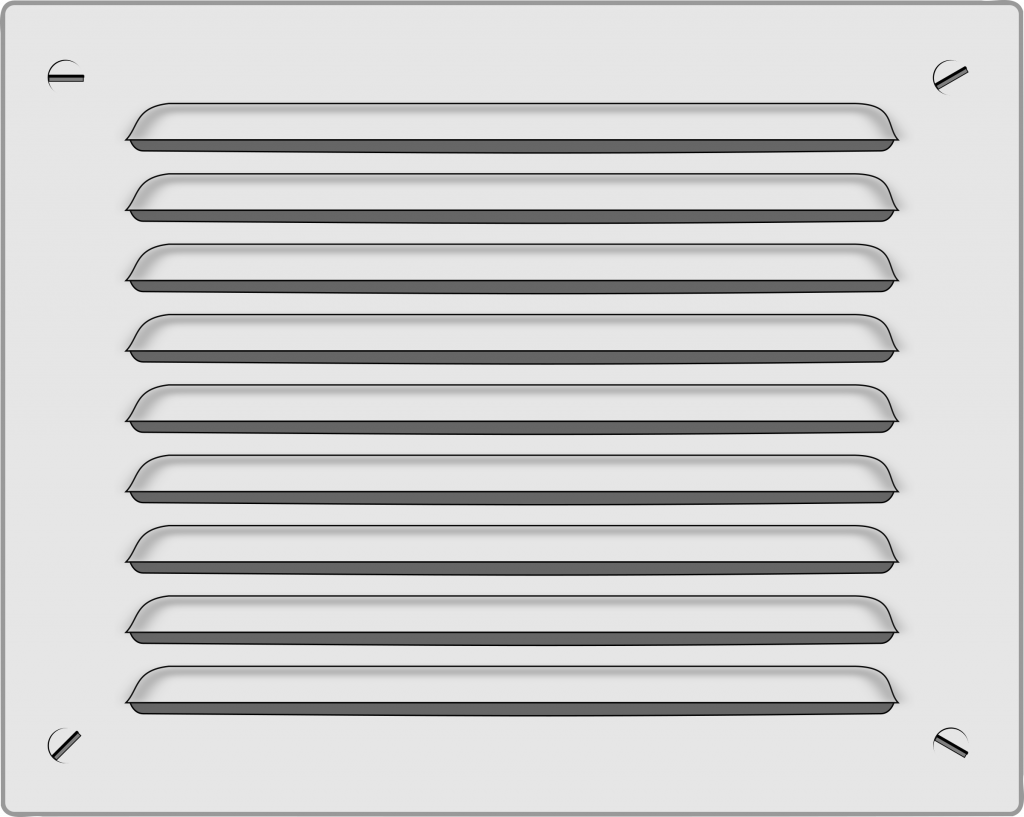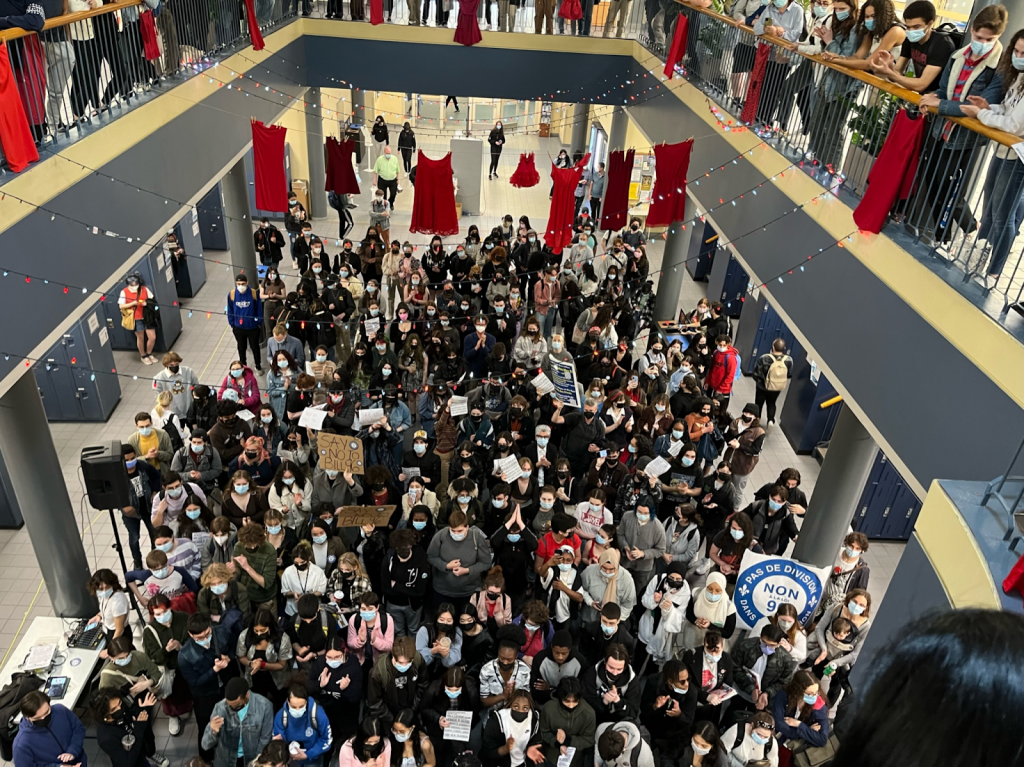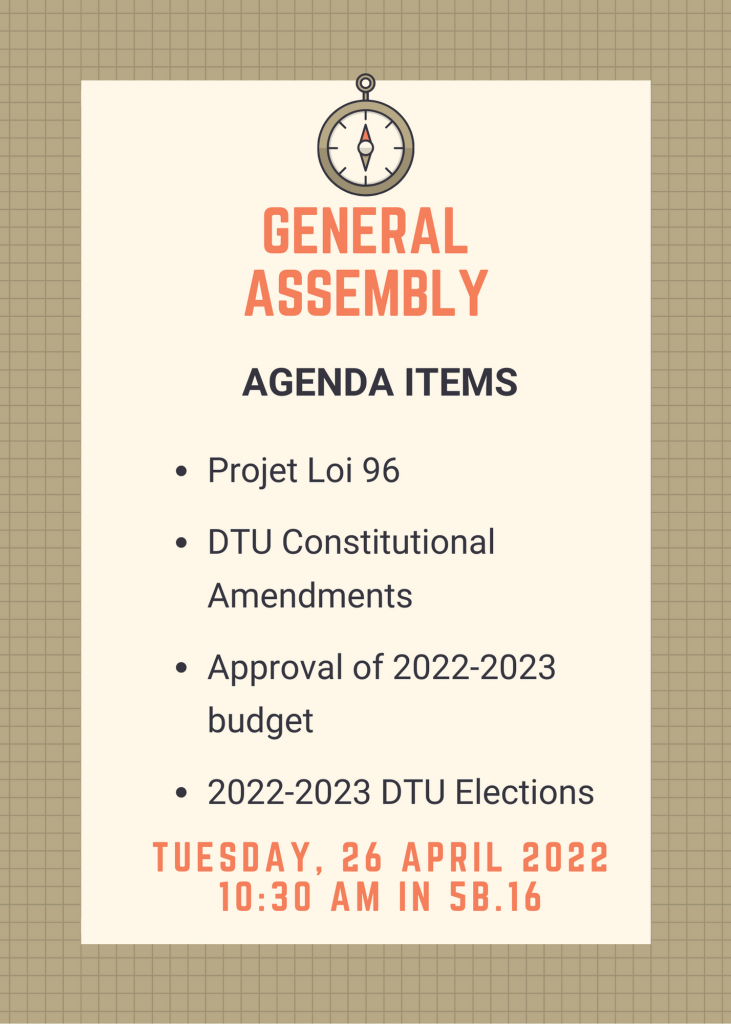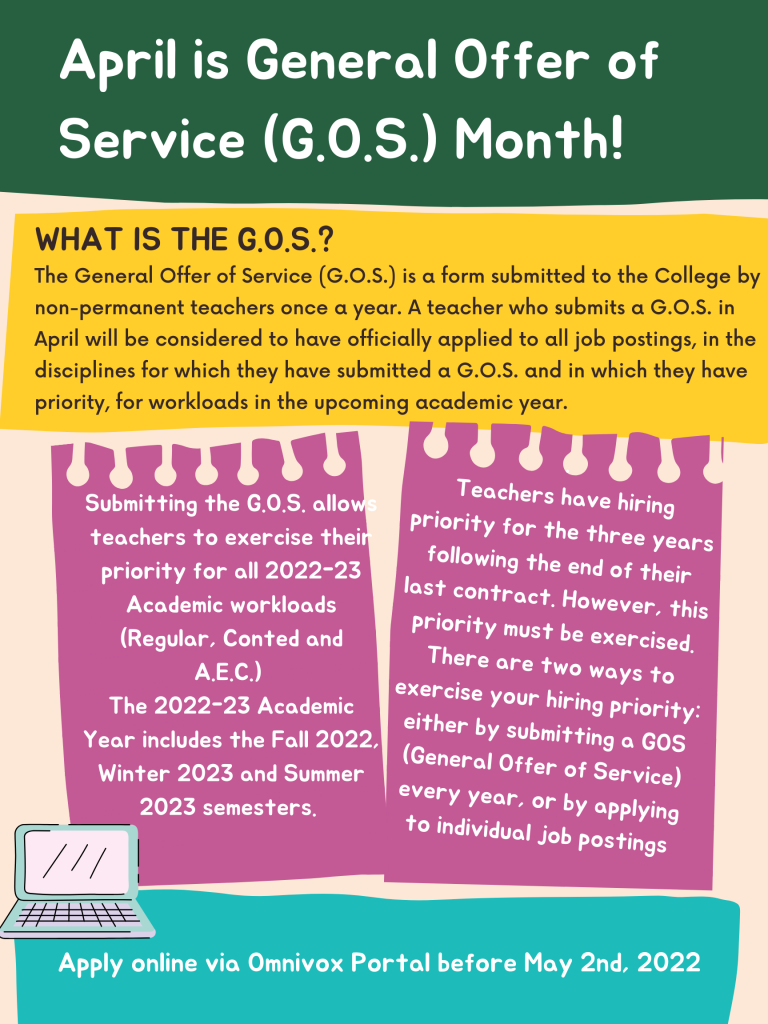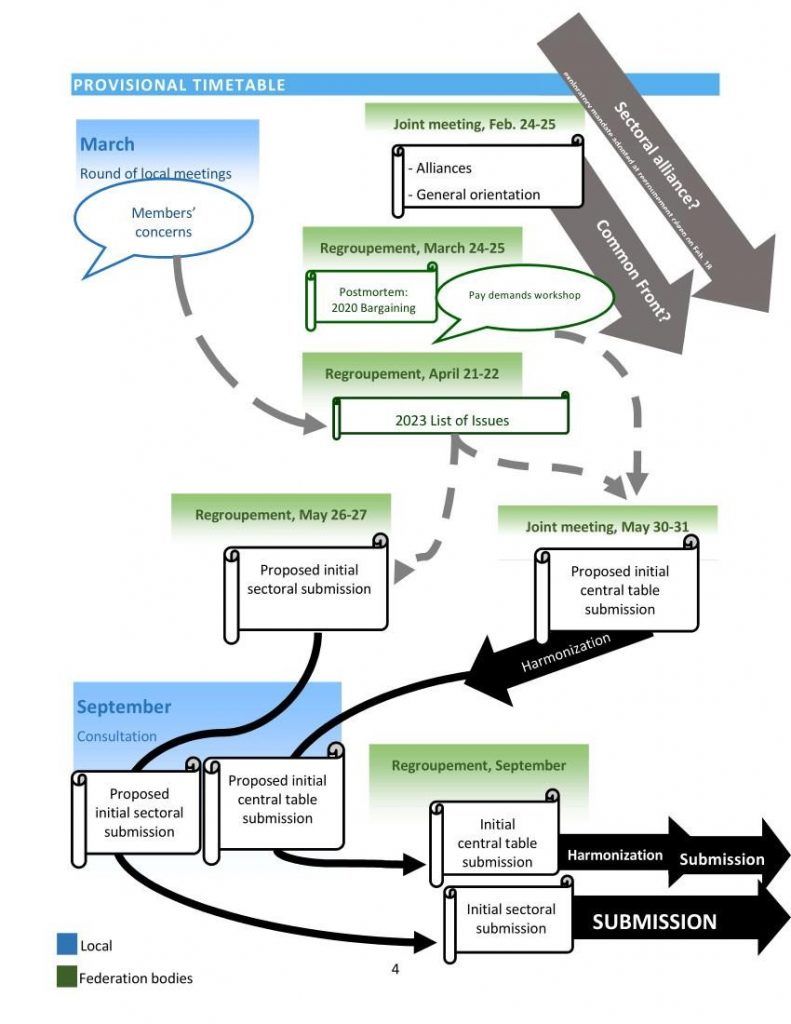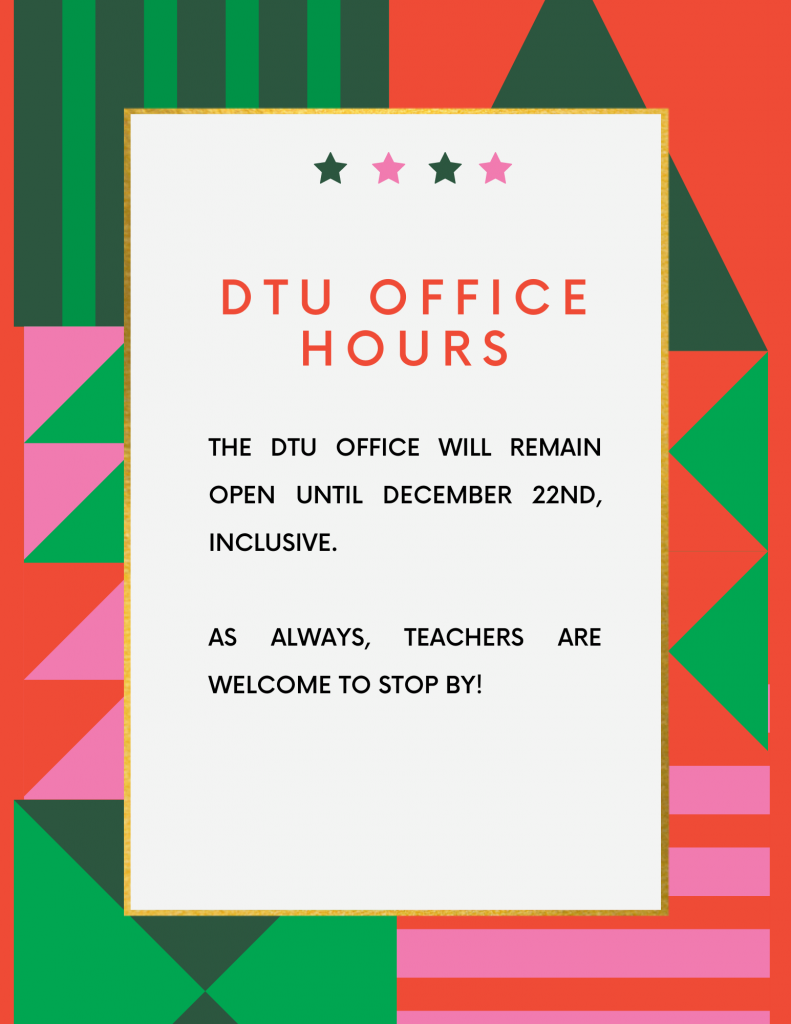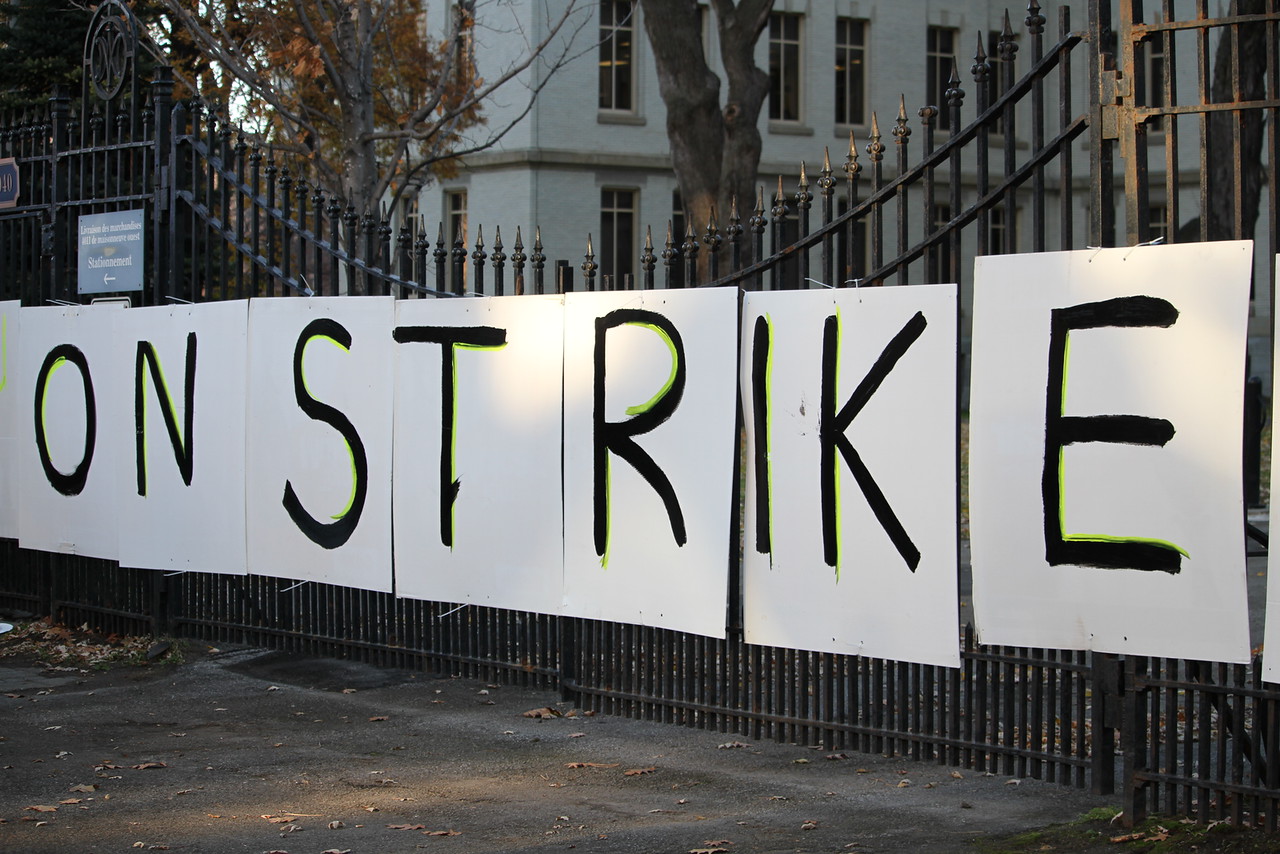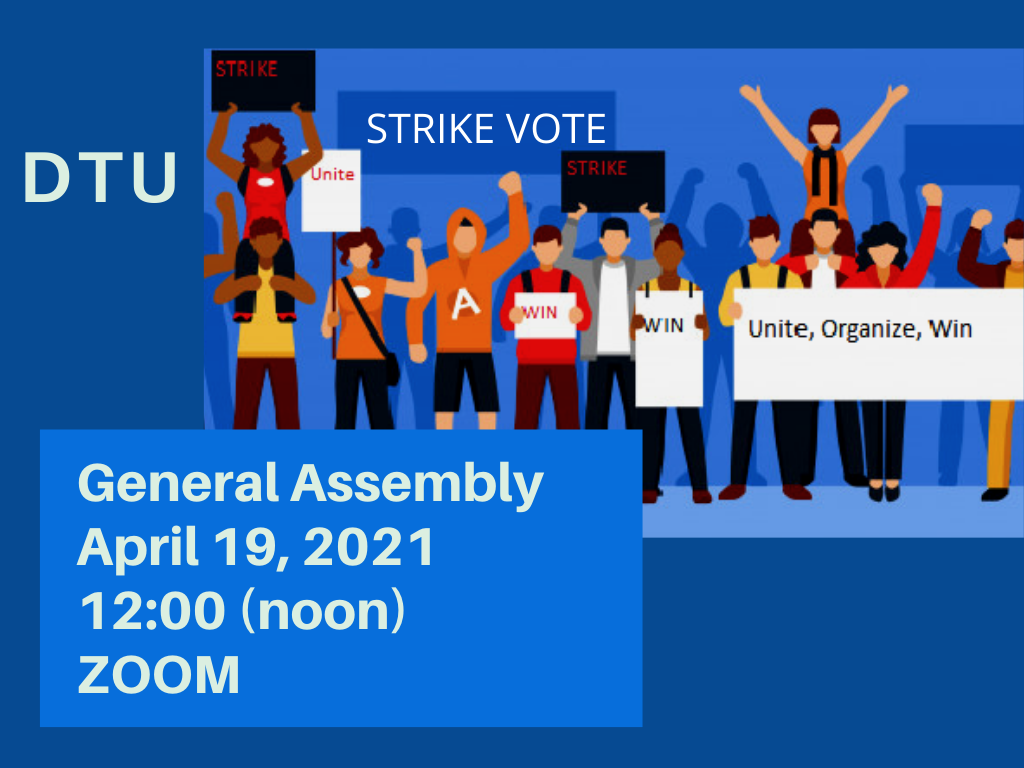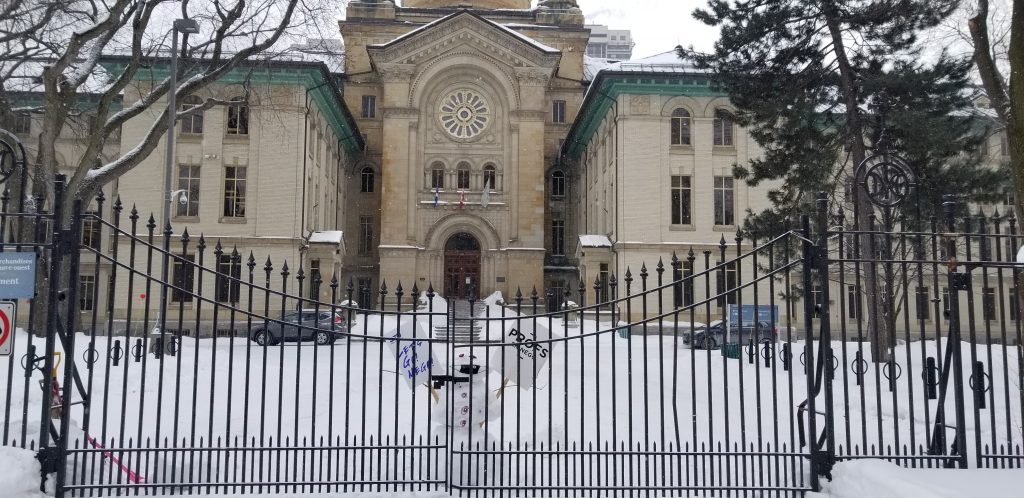
The DTU Executive
Louisa Hadley, President
President@dtu.qc.ca
Brian Seivewright, VP Internal
VPInternal@dtu.qc.ca
Mélanie Beck, VP External
VPExternal@dtu.qc.ca
Antonia Fikkert, Secretary-Treasurer
Secretary_Treasurer@dtu.qc.ca
Emilie Richer, Grievance Officer
grievanceofficer@dtu.qc.ca
Administrative Assistant
Elisabeth Leone
Elisabeth@dtu.qc.ca
DTU email: dtu@dtu.qc.ca
In this issue:
Welcome Message
Executive Council Meetings
Local Activities
New Teachers – Schooling and Experience
Law 14 Update
FNEEQ Guide for Inclusive Communication
Your Rights, Explained
The DTU Executive invites you to drop by our office in 8A.11. We can answer questions regarding workloads, seniority and priority, schooling and work experience documentation, and anything else related to working at Dawson. In particular, before turning down work we encourage you to come and discuss the implications with us. We always recommend copying us into communications with the College so that we can help to make sure that your rights are protected. You can also call us at local 1799, or email us at dtu@dtu.qc.ca with any questions.
Executive Council Meetings
Executive Council meetings are usually held once a month during the semester. The Agenda and Minutes are sent out one week in advance of the meeting, but if you would like to mark them in your calendar, the dates for this semester’s meetings are 4-6pm on March 6th, 4-6pm on April 10th, and 10am-12pm on May 27th. All members are welcome to attend Executive Council meetings.
 Local Activities
Local Activities
This semester there will be many opportunities to interact and mobilise with your colleagues. More information will be coming, but for now, mark your calendars!
DTU Events
Law 14 drop-in session: 1-3pm Thursday, February 15th, Boardroom (5B.13)
International Women’s Day: Friday, March 8th
More details will be forthcoming. As always, we will need volunteers to help out with these events; please feel free to reach out if you are interested in volunteering!
External Events
Walk for Missing and Murdered Indigenous Women and Girls: 6pm Wednesday, February 14th, Cabot Square
Action Coalition Main Rouge in relation to the global day for social justice: Noon Tuesday, February 20th. Downtown Montreal. Register online to receive the exact location: https://framaforms.org/inscription-action-coalition-main-rouge-fraca-du-20-fevrier-1706656479
New Teachers – Schooling and Experience
As a reminder, teachers have 30 days from the date they are hired to provide the documents necessary for the College to evaluate your education and experience for pay purposes. As long as you provide the documents – or at least evidence that you have attempted to get the documents – within this timeframe, any impact on your pay will be retroactive to your hiring date. It is still worth submitting documents after this time, though any pay increases will only be retroactive to the date of submission.
Law 14 Update
As the implementation of Law 14 (previously Bill 96) progresses, we wanted to provide an update on the negotiations with the government regarding the implications for our working conditions.
Implementation of Law 14 at Dawson
As a brief reminder, there are several aspects of Law 14 that have implications for Dawson and the courses we offer. The first phase of implementation requires that all non-certificate holders take the French Exit Exam prior to graduation. To prepare the students, starting in Fall 2023 the French department has been offering new courses with competencies designed to prepare students for the Exit Exam. This required modifications to the program grids that impacted on staffing for both complementary courses and some General Education courses.
The second phase of implementation requires that colleges prioritize admissions for certificate holders. Dawson has developed an admissions policy to reflect this which was officially in effect as of Winter 2024; since we do not admit many students in the Winter semester, the main impact of this will be seen with the admissions for Fall 2024.
Finally, the next phase is to implement the requirement that all students have 5 courses “of or in” French – whether the courses are French language courses or other courses taught in French depends on whether the students are certificate holders and their level of French. As a result of this, courses will begin to be offered in French in other disciplines. Programs have identified which courses will be offered in French, which in many cases will be a Humanities course. Although this phase is officially to be implemented starting in Fall 2024, the courses selected occur in the third semester, or later, of the program, so the impact will only be felt as of Fall 2025.
Survey on French Ability
Given that many departments will need to start offering courses in French, the College has decided to survey faculty on their French ability as a preliminary step to determine staffing needs. The DTU are co-sponsoring the survey and have been actively involved in its design; the College has also committed to sharing the results with the DTU.
The survey will be available on Omnivox soon and it will be mandatory. It is important that faculty participate so that, whenever possible, courses can be assigned to those who are both proficient and willing to teach in French.
Union Negotiations on Protections for Law 14
Separately from the Collective Agreement negotiations, the FNEEQ is negotiating with the government to develop a “lettre d’entente” addressing the changes to the working conditions of teachers in anglophone cegeps as a result of Law 14. The FNEEQ negotiating team includes two FNEEQ representatives as well as a teacher representative from an anglophone cegep; the teacher representative is DTU Executive member Émilie Richer. There are also discussions happening with the administration of the anglophone cegeps to develop a unified approach to increase the likelihood of the government agreeing.
There are many possible elements being discussed at the moment, but the FNEEQ is hoping to get an agreement that includes:
a 5-year transition phase during which teachers who are unable to teach a course in French would be able to turn down the course without losing seniority and priority
access to a leave for professional development training for teachers whose French ability is not sufficient to teach courses in French in their discipline
recognition that the same course in a different language counts as a distinct preparation for CI calculation
The DTU will be holding a Law 14 drop-in session from 1-3pm on Thursday, February 15th in the Boardroom (5B.13). Members of the DTU Executive will be available to answer questions.
 FNEEQ Guide for Inclusive Communication
FNEEQ Guide for Inclusive Communication
Le comité femmes and Le comité diversité sexuelle et pluralité des genres have developed a guide to promote inclusive communication in French with regards to gender. The guide provides some background and context as well as helpful tips regarding pronouns, titles, gendered endings, and neutral formulations. We encourage you to consult the guide here. The committees intend to adapt the guide for the English language in the coming months.
Your Rights, Explained
Availability
The collective agreement (Clause 8-3.00) specifies that full-time teachers are available to the college 32.5 hours per week from Monday to Friday (normally 6.5 hours/day). Part-time teachers must be available for a period equivalent to his/her teaching load as a proportion of a full-time load (specifically their C.I. for the semester ÷ 40 multiplied by 32.5 hours). Obviously many aspects of our work require presence at the College, but you are not necessarily expected to be at the College for all of your hours of availability. The collective agreement requires that you be at the college when your duties require it (e.g. teaching, department meetings, hiring committees) provided these duties fall within your 32.5 hours of weekly availability. Continuing Education teachers (without a charge course) do not owe availability beyond the hours of their course plus some student encadrement, fulfilled in the time and method of their choosing.
As a result of the College’s decision to revise the Academic Calendar and reschedule classes that were cancelled due to the strike, teachers who taught in the Regular Day sector in Fall 2023 owe less availability to the College this year. If you taught full-time in the Day, the College docked 52 hours of your pay and subsequently asked you to retake your course preparation, lecturing, and grading but to drop other tasks instead (part-time teachers would have been docked a proportional amount).
The Union’s position is that all of our tasks are essential and difficult to divide. We asked the College to remunerate us so that we can complete our tasks, but the College replied that it does not have the funds. It is very important that members follow the College’s directive to drop tasks and the motion passed by the General Assembly to protect the principles of collective labour action by declining to work without remuneration. Examples include committee work and departmental tasks such as annual reports, revisions, and meetings. Please contact the dtu with any questions or concerns on this issue.
Special Leaves
Both Regular and Continuing Education faculty are eligible for special leaves without loss of pay under clause 5-9.01 of the Collective Agreement. These include short-term leaves: for the death of your spouse or a family member; for your wedding or a wedding in your immediate family; for moving; or due to an act of God preventing you from working.
All teachers also benefit from up to ten days of leave for family reasons per year under clause 5-9.06 of the Collective Agreement. These leaves may be used for any obligations arising from the care or education of your child or your spouse’s child, or from the health of a spouse or a close relative (see the Collective Agreement for what is considered a close relative for the purposes of this clause). Up to six of these days may be claimed from your sick bank, if applicable. Half-day leaves are also possible.
Extended leaves for family reasons are available in exceptional circumstances. Feel free to contact the DTU for more information.
Note that our Collective Agreement does not provide personal days for anything beyond the reasons above.
If you need to avail yourself of one of these leaves, you must inform your sector dean in writing as soon as possible, and be sure to indicate the reason for the leave on the Certificate of Absence. You are encouraged to copy the DTU in your correspondence (dtu@dtu.qc.ca).



